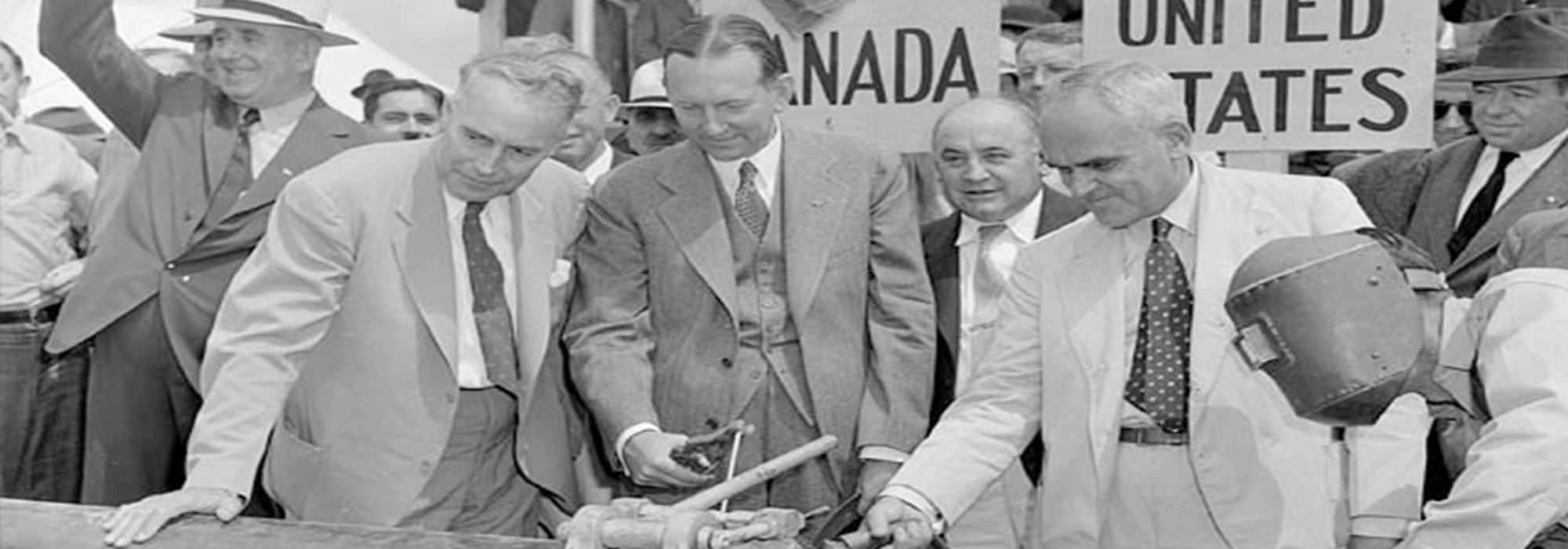
In 2017, Canadians are marking the 150th anniversary of Confederation. By reflecting on how Canadians in the 1860s tackled the national security challenges of their time, we can learn some lessons that can help improve policy in the present.
The inhabitants of British North America in the 1860s faced an existential security threat: the prospect of an imminent invasion by the United States. Older people in those years could remember the devastation caused by the War of 1812. The American Civil War (1861-65) exacerbated pre-existing tensions between the British Empire and the United States and created fears that there would be a repeat of the earlier conflict, fought this time with a deadlier generation of weapons. As the Fathers of Confederation gathered in Charlottetown and Quebec, the Civil War was drawing to a close and British North Americans were worried that once the South was defeated, Lincoln would send the Union Army north to conquer Canada.
Throughout the 1860s, the Fathers of Confederation and other British North Americans vigorously debated the best way of responding to this threat. One perspective, which was associated with Conservatives such as John A. Macdonald and George-Étienne Cartier, emphasized deterrence and “peace through strength.” These people argued that the best way of keeping Canada safe was to build up a large, well-funded military capable of repelling any aggression. For them, it was obvious that security was purchased by higher defence spending.
In sharp contrast, Liberals such as George Brown thought that security would be best achieved by demilitarizing the border and demonstrating to the United States that Canada wasn’t a threat. Cross-border trade was a key part of their strategy for maintaining peace: some Liberals argued in favour of building cross-border infrastructure to help increase trade volumes, the assumption being that more trade would make war less likely.
As my co-author and I demonstrated in a recent article, a group of peace-loving entrepreneurs worked throughout the 1860s to oppose plans to militarize Canadian society and Canada’s border with the United States. In 1868, Liberal MPs such as Ebenezer Bodwell argued eloquently that cross-border trade, not stronger fortresses and garrisons, was the best guarantor of peace. These anti-war entrepreneurs also influenced British policy, or at least the decision to withdraw most British troops from Canada, a measure that was vehemently opposed by Macdonald’s Conservatives. One of them worked behind the scenes to broker a diplomatic settlement between the UK and the US.
After 1871, Canada and the US shared the world’s longest undefended border. Eliminating border defences made Canada more rather than less safe. In the four decades after Confederation, pressure from business leaders and other taxpayers kept the federal government from creating a substantial military.
Canada departed from this liberal approach only in the early 20th century, when it was sucked into what Laurier called “the vortex of European militarism.” By that time, the Canadian and US economies were so integrated as to make war between these nations a very distant possibility.
What are the lessons for present-day policy-makers from the era of Confederation? The belief of the Liberals in the 1860s that promoting cross-border trade promotes peace and is usually the best way of ensuring national security provides a lens we can use to understand the very different security dilemmas we face right now. Since the early 20th century, war between Canada and the United States has become unthinkable, in part because of the sheer extent of our economic integration.
In recent decades, European economic integration has helped to make war between Germany and France as unthinkable as war between the United States and Canada. In the 21st century, we now face the challenge of building a durable peace that includes countries from very different civilizations, political systems and religious traditions. Tensions with Russia remain high, and many observers were increasingly worried about the state of Sino-American relations even before the 2016 presidential election.
How can Canadian policy-makers use trade to ensure the security of Canadians and to make the world as a whole more peaceful?
First, trade deals with potential adversary nations should be prioritized. The recently concluded trade deal between Canada and the EU will bring certain economic benefits, but it is probably superfluous from a human security point of view, since war between Canada and the EU is already most unlikely. In contrast, investing Canada’s limited diplomatic resources in reaching agreements with Asian nations, particularly China, could help to build peace by promoting commercial and social exchanges with these countries. Joining the 16-nation Regional Comprehensive Economic Partnership would also signal that Canada does not share the zero-sum world view associated with the new US administration. A high-visibility trade deal with a Muslim nation would distance Canada from the anti-Muslim rhetoric of the new US president and from the idea that the West is locked in an inevitable “clash of civilizations” with the Muslim world.
In addition, Canadian diplomats could facilitate bilateral trade agreements between developing nations that have histories of conflict. Canada’s reputation as an honest broker and its expertise in economic diplomacy means that it is well suited to helping to negotiate agreements between nations such as Pakistan and India. To the extent that such agreements promote economic interdependence between these nations, the world as a whole will be a safer place.
Finally, Canada’s representatives can use the World Trade Organization and other multilateral forums to make a moral argument for free trade that can supplement the traditional economic arguments. Economists have long argued that freer trade makes the world more prosperous. Other social scientists have now published strong evidence showing that international trade makes the world more peaceful as well. In the last decade, the “trade equals peace” thinking of the Liberal Fathers of Confederation has been corroborated by peer-reviewed research by political scientists and management academics. Canadian diplomats can use the accumulating evidence of the peace-producing effects of trade to convince an increasingly skeptical world of the benefits of reducing trade barriers.
This article is part of the Public Policy toward 2067 special feature.
Photo: Official ceremony at the border of Canada and United States of the joining of the pipeline from an oil tanker terminal, Portland, Maine with refineries in Montreal. National Flim Board. Photothèque / Library and Archives Canada.
Do you have something to say about the article you just read? Be part of the Policy Options discussion, and send in your own submission. Here is a link on how to do it. | Souhaitez-vous réagir à cet article ? Joignez-vous aux débats d’Options politiques et soumettez-nous votre texte en suivant ces directives.







